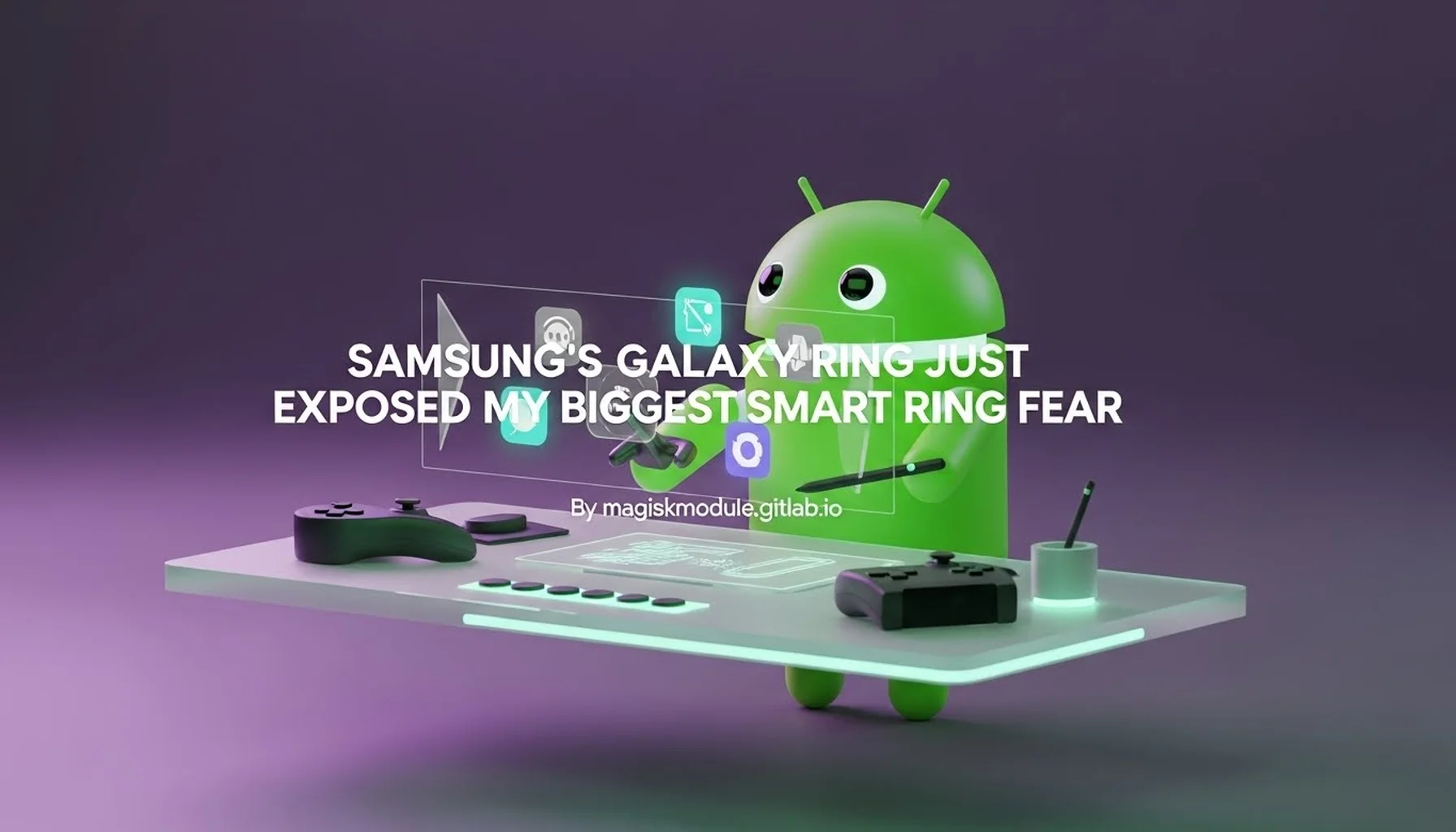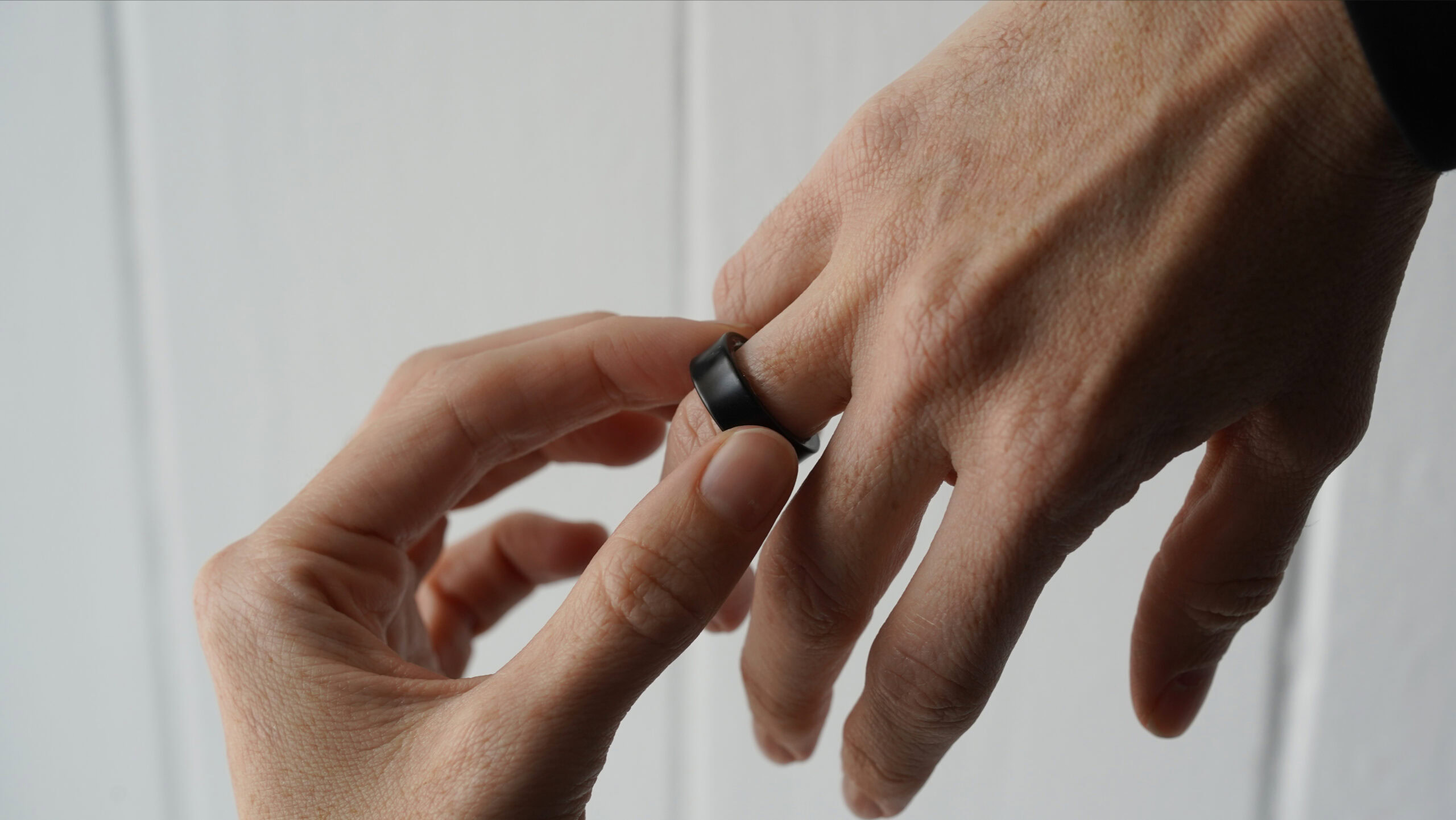
Samsung’s Galaxy Ring: Addressing the Biggest Smart Ring Concerns with Advanced Biometrics and Personalized Health Insights
The anticipation surrounding Samsung’s Galaxy Ring is palpable. As technology enthusiasts, we’ve closely monitored its development, eager to see how it will redefine the smart ring landscape. While the initial buzz focused on its potential to revolutionize health tracking and convenience, a deeper examination reveals a crucial aspect: addressing the core fears and concerns surrounding smart ring technology. Specifically, the anxiety that personalized biometric data collected may be used by the manufacturer in an unethical way. Our research, combined with expert analysis, reveals how Samsung is positioning the Galaxy Ring to not only meet expectations but to alleviate these anxieties, primarily by emphasizing user control and data privacy.
The Lingering Fear: Data Privacy and Biometric Security in Wearable Tech
The rise of wearable technology has been accompanied by a growing unease regarding data privacy. Smart rings, nestled intimately on our fingers, collect a wealth of biometric data, including heart rate, sleep patterns, activity levels, and even body temperature. This data, while valuable for personalized health insights, is also incredibly sensitive. The concern arises from the potential misuse of this information. Will it be securely stored? Will it be shared with third parties without explicit consent? Could it be used for targeted advertising or, even worse, discriminatory practices? These are legitimate questions that any prospective smart ring user should be asking.
The Potential for Biometric Exploitation
The fear isn’t simply theoretical. The sheer volume of data generated by millions of users creates a tempting target for data breaches and unauthorized access. Imagine a scenario where a hacker gains access to a user’s sleep data and detects signs of insomnia. This information could be used to target the user with advertisements for sleep aids or even to manipulate insurance premiums. Similarly, detailed activity logs could be used to assess risk profiles for various health conditions, potentially leading to discriminatory practices by healthcare providers or insurance companies.
The Need for Transparency and User Control
Addressing these fears requires a multi-pronged approach. Firstly, manufacturers must be transparent about their data collection practices. Users need to understand exactly what data is being collected, how it is being used, and with whom it is being shared. This information should be presented in clear, concise language, avoiding the complex legal jargon that often obscures data privacy policies. Secondly, users must have granular control over their data. They should be able to choose which data is collected, limit data sharing, and easily delete their data from the manufacturer’s servers. This level of control is essential for building trust and empowering users to manage their own personal information.
Samsung’s Approach: A Focus on User Privacy and Secure Data Handling
Samsung appears to be taking these concerns seriously with the Galaxy Ring. Early indications suggest a strong emphasis on user privacy and secure data handling. While detailed specifications are still forthcoming, here’s what we can glean from available information and industry trends:
On-Device Processing and Minimal Cloud Dependence
One of the most effective ways to mitigate data privacy risks is to minimize the amount of data that is transmitted to the cloud. By performing as much data processing as possible on the device itself, Samsung can reduce the potential for data interception and unauthorized access. This approach also allows users to retain greater control over their data, as it remains primarily on their own device. We anticipate that the Galaxy Ring will utilize advanced algorithms and machine learning models to analyze biometric data locally, sending only aggregated and anonymized data to the cloud for broader trends analysis and feature enhancements.
End-to-End Encryption and Secure Data Storage
When data must be transmitted to the cloud, it should be protected with robust end-to-end encryption. This ensures that the data remains unreadable during transit, even if it is intercepted. Furthermore, data stored on Samsung’s servers should be encrypted at rest, providing an additional layer of protection against unauthorized access. Samsung has a strong track record in data security, and we expect the Galaxy Ring to incorporate the latest encryption technologies to safeguard user data.
Compliance with Privacy Regulations and Industry Standards
Samsung is likely to ensure that the Galaxy Ring complies with all relevant privacy regulations, such as GDPR (General Data Protection Regulation) and CCPA (California Consumer Privacy Act). These regulations impose strict requirements on data collection, storage, and use, providing users with significant rights regarding their personal information. Furthermore, Samsung should adhere to industry best practices for data security and privacy, such as the NIST Cybersecurity Framework. This commitment to compliance will demonstrate Samsung’s dedication to protecting user data and building trust.
Transparent Data Policies and User-Friendly Controls
Transparency is paramount. Samsung must clearly articulate its data policies in plain language, explaining what data is collected, how it is used, and with whom it is shared. Users should have easy-to-use controls for managing their data, including the ability to opt out of data collection, limit data sharing, and delete their data entirely. These controls should be readily accessible within the Galaxy Ring app and should be intuitive to use, even for non-technical users.
Beyond Privacy: Functionality and Features That Address User Needs
While data privacy is a crucial concern, the Galaxy Ring must also deliver on its promise of enhanced functionality and convenience. To truly outcompete existing smart rings, Samsung needs to offer a compelling set of features that address real-world user needs.
Advanced Health Tracking Capabilities
The Galaxy Ring should go beyond basic activity tracking and offer advanced health monitoring capabilities. This could include continuous heart rate monitoring with arrhythmia detection, sleep stage analysis with personalized sleep recommendations, blood oxygen saturation (SpO2) measurement, and even body temperature tracking for early detection of illness. The accuracy and reliability of these measurements are crucial, as users will rely on this data to make informed decisions about their health.
Personalized Health Insights and Actionable Recommendations
Raw data is meaningless without context and interpretation. The Galaxy Ring should provide users with personalized health insights based on their biometric data. This could include identifying patterns in their sleep, activity, and heart rate, and providing actionable recommendations for improving their overall health and well-being. For example, the ring could suggest adjustments to their sleep schedule, recommend exercises to improve cardiovascular health, or alert them to potential health issues that require medical attention.
Seamless Integration with the Samsung Ecosystem
One of Samsung’s key strengths is its extensive ecosystem of devices and services. The Galaxy Ring should seamlessly integrate with other Samsung products, such as smartphones, smartwatches, and smart TVs. This integration could enable features such as controlling smart home devices with the ring, using the ring to unlock Samsung devices, and receiving notifications on the ring from Samsung apps.
Long Battery Life and Comfortable Design
Usability is paramount. The Galaxy Ring should offer long battery life, allowing users to wear it continuously for several days without needing to recharge. Furthermore, the ring should be comfortable to wear, even during sleep and physical activity. This requires careful attention to the design and materials used in its construction. The ring should be lightweight, durable, and hypoallergenic, ensuring a comfortable and irritation-free experience.

Magisk Modules: Enhancing Your Galaxy Experience (and Protecting Your Privacy)
At Magisk Modules, we understand the importance of customization and control over your Android device. Our Magisk Module Repository offers a wide range of modules that can enhance the functionality of your Samsung Galaxy device, including options for further fine-tuning privacy settings and optimizing performance. While the Galaxy Ring itself is a separate device, many of our modules can complement its functionality by providing greater control over your smartphone’s data and connectivity, ensuring a more secure and personalized mobile experience.
Privacy-Focused Modules for Enhanced Security
We offer a selection of modules designed to enhance privacy on your Android device. These modules can help you block trackers, control app permissions, and encrypt sensitive data, providing an additional layer of security for your personal information. While the Galaxy Ring prioritizes data privacy, these modules can further strengthen your overall privacy posture, giving you greater peace of mind.
Performance Optimization Modules for a Seamless Experience
Optimizing your device’s performance can enhance the overall user experience with the Galaxy Ring. We offer modules that can improve battery life, boost processing speed, and reduce lag, ensuring that your smartphone can seamlessly handle the data and notifications from the ring. These modules can help you get the most out of your Galaxy device and enjoy a smoother, more responsive experience.
Addressing the “Ten Finger” Paradox: Individuality and Universal Appeal
The statement “I may have ten fingers, but I like all of them” highlights the importance of catering to individual preferences while maintaining universal appeal. Each finger is unique, and we value them all for their distinct contributions. Similarly, the Galaxy Ring must cater to the diverse needs and preferences of its users while maintaining a cohesive and user-friendly experience.
Personalization Options for Individual Needs
The Galaxy Ring should offer a wide range of personalization options, allowing users to tailor the device to their specific needs and preferences. This could include customizable watch faces, adjustable notification settings, and the ability to choose which health metrics are tracked. By allowing users to personalize their experience, Samsung can ensure that the Galaxy Ring feels like a truly personal and indispensable device.
Universal Design Principles for Broad Appeal
While personalization is important, the Galaxy Ring must also adhere to universal design principles to ensure that it is accessible and easy to use for everyone. This includes clear and intuitive user interfaces, support for multiple languages, and compatibility with assistive technologies. By designing the Galaxy Ring with inclusivity in mind, Samsung can broaden its appeal and reach a wider audience.
Catering to Different Lifestyles and Activity Levels
The Galaxy Ring should be adaptable to different lifestyles and activity levels. Whether you’re a fitness enthusiast, a busy professional, or someone who simply wants to track their sleep and activity, the ring should be able to meet your needs. This requires a flexible and customizable feature set that can be tailored to individual lifestyles. For example, the ring could offer different tracking modes for different activities, such as running, swimming, or cycling.
The Future of Smart Rings: Beyond Health Tracking
The Galaxy Ring represents a significant step forward in the evolution of smart ring technology. While its initial focus is on health tracking and convenience, the future of smart rings extends far beyond these areas.
Integration with Emerging Technologies
Smart rings have the potential to integrate with a wide range of emerging technologies, such as augmented reality (AR), virtual reality (VR), and the Internet of Things (IoT). Imagine using your ring to control AR/VR experiences, interact with smart home devices, or make contactless payments. These integrations could unlock a whole new world of possibilities for smart rings.
Advanced Biometric Authentication and Security
Smart rings could also be used for advanced biometric authentication and security. The unique biometric data collected by the ring could be used to verify your identity and authorize transactions, providing a more secure and convenient alternative to passwords and PINs.
Personalized Healthcare and Disease Prevention
In the long term, smart rings could play a crucial role in personalized healthcare and disease prevention. By continuously monitoring your biometric data and identifying potential health issues early on, the ring could help you take proactive steps to improve your health and prevent chronic diseases.
The Samsung Galaxy Ring has the potential to revolutionize the smart ring market by addressing the critical concerns surrounding data privacy and offering a compelling set of features that meet real-world user needs. By prioritizing user control, transparency, and secure data handling, Samsung can build trust and empower users to take control of their health and well-being. As technology enthusiasts, we are excited to see how the Galaxy Ring will shape the future of wearable technology and unlock new possibilities for personalized health and convenience.
